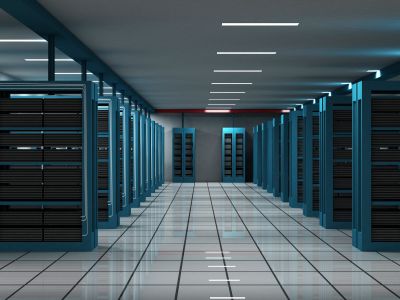Network Storage Solutions for Business Growth

When businesses outgrow their basic file storage systems, productivity grinds to a halt. Employees waste time searching for files across multiple devices, collaboration becomes fragmented, and data security becomes a nightmare to manage. The solution lies in implementing robust network storage solutions that can adapt to your company’s evolving needs.
Network storage solutions provide centralized data management that grows alongside your business. Whether you’re managing a small team or coordinating across multiple departments, the right storage infrastructure ensures seamless access to critical information while maintaining security and backup protocols. This comprehensive guide explores the key storage options available and how to choose the system that will support your business growth trajectory.
Understanding Network Storage Fundamentals
Network storage solutions enable multiple users to access shared data through a network connection rather than storing files locally on individual devices. This centralized approach transforms how teams collaborate and ensures consistent data availability across your organization.
The primary advantage of network storage solutions lies in its scalability. As your business grows, you can expand storage capacity without replacing your entire system. Additionally, centralized storage simplifies backup procedures, enhances security controls, and reduces the IT overhead associated with managing multiple individual storage devices.
Modern network storage systems offer various access methods, including direct network connections, cloud-based interfaces, and hybrid solutions that combine local and remote storage capabilities.
Types of Network Storage Solutions
Network Attached Storage (NAS)
NAS storage solutions represent the most popular choice for small to medium-sized businesses. These dedicated storage devices connect directly to your network and provide file-level access to multiple users simultaneously.
NAS systems excel in simplicity and cost-effectiveness. They typically include built-in redundancy through RAID configurations, automatic backup features, and user-friendly management interfaces. Many NAS devices also support multimedia streaming, making them versatile for businesses that handle video content or require media servers.
For growing businesses, NAS solutions offer excellent scalability. You can start with a basic two-bay system and expand to enterprise-grade units with dozens of drive bays as your storage needs increase.
Storage Area Networks (SAN)
SAN systems provide block-level storage access through high-speed network connections. These enterprise-grade solutions offer superior performance and are ideal for businesses running database applications, virtualized environments, or other performance-critical workloads.
While SAN systems require more technical expertise to implement and manage, they deliver unmatched speed and reliability. They support multiple protocols and can integrate with various operating systems and applications seamlessly.
Cloud-Based Network Storage
Cloud storage solutions eliminate the need for on-premises hardware while providing global accessibility. These services scale automatically based on usage and offer built-in redundancy across multiple data centers.
Cloud-based options work particularly well for distributed teams or businesses with remote workers. They provide consistent access regardless of location and typically include collaboration tools that enhance team productivity.
Key Features to Consider
Scalability and Performance
Your chosen network storage solution should accommodate both current needs and future growth. Look for systems that support easy capacity expansion without service interruption. Performance considerations include data transfer speeds, concurrent user limits, and the ability to handle your specific file types and sizes efficiently.
Consider how your data usage patterns might change as your business grows. Video files, design assets, and databases have different storage requirements than basic office documents.
Security and Access Control
Robust security features protect your business data from unauthorized access and cyber threats. Essential security components include user authentication systems, folder-level permissions, encryption capabilities, and audit trails that track file access and modifications.
Advanced security features might include two-factor authentication, IP access restrictions, and integration with existing directory services like Active Directory.
Backup and Recovery
Comprehensive backup capabilities ensure business continuity in case of hardware failure or data corruption. Look for solutions that support automated backup schedules, versioning systems that maintain multiple file versions, and quick recovery options.
Consider both local backup options and off-site replication for complete data protection. Some systems offer snapshot capabilities that create point-in-time copies of your data without impacting system performance.
Planning Your Storage Implementation
Assessing Current and Future Needs
Calculate your current storage requirements by auditing existing data across all devices and systems. Factor in growth projections based on your business plans, new employee additions, and expanding data types.
Don’t forget to account for backup storage, which typically requires 2-3 times your primary storage capacity depending on your retention policies and backup strategies.
Budget Considerations
Network storage investments should balance initial costs with long-term value. While NAS storage solutions typically require higher upfront investment than cloud services, they often provide better long-term economics for businesses with substantial storage needs.
Factor in ongoing costs such as maintenance, electricity, replacement drives, and potential expansion modules. Cloud solutions involve recurring subscription fees that scale with usage.
Integration Requirements
Evaluate how new storage solutions will integrate with your existing IT infrastructure. Consider compatibility with current operating systems, applications, and workflow processes. Some solutions require specific network configurations or may need additional hardware for optimal performance.
Plan for user training and change management, as transitioning to centralized storage often requires adjustments to established work habits and procedures.
Making the Right Choice for Growth
Selecting appropriate network storage solutions requires balancing current needs with future scalability requirements. Start by clearly defining your performance requirements, security needs, and budget constraints.
For most growing businesses, NAS storage solutions provide the optimal combination of affordability, ease of use, and scalability. They offer professional-grade features without requiring extensive IT expertise to manage effectively.
Consider starting with a mid-range system that exceeds your current needs slightly, providing room for immediate growth while establishing the foundation for future expansion. This approach minimizes disruption while ensuring your storage infrastructure supports rather than hinders business development.
The right network storage solution becomes an invisible foundation that enables your team to focus on core business activities rather than worrying about data access and protection. Invest time in proper planning and selection to ensure your storage infrastructure grows seamlessly alongside your business success.



